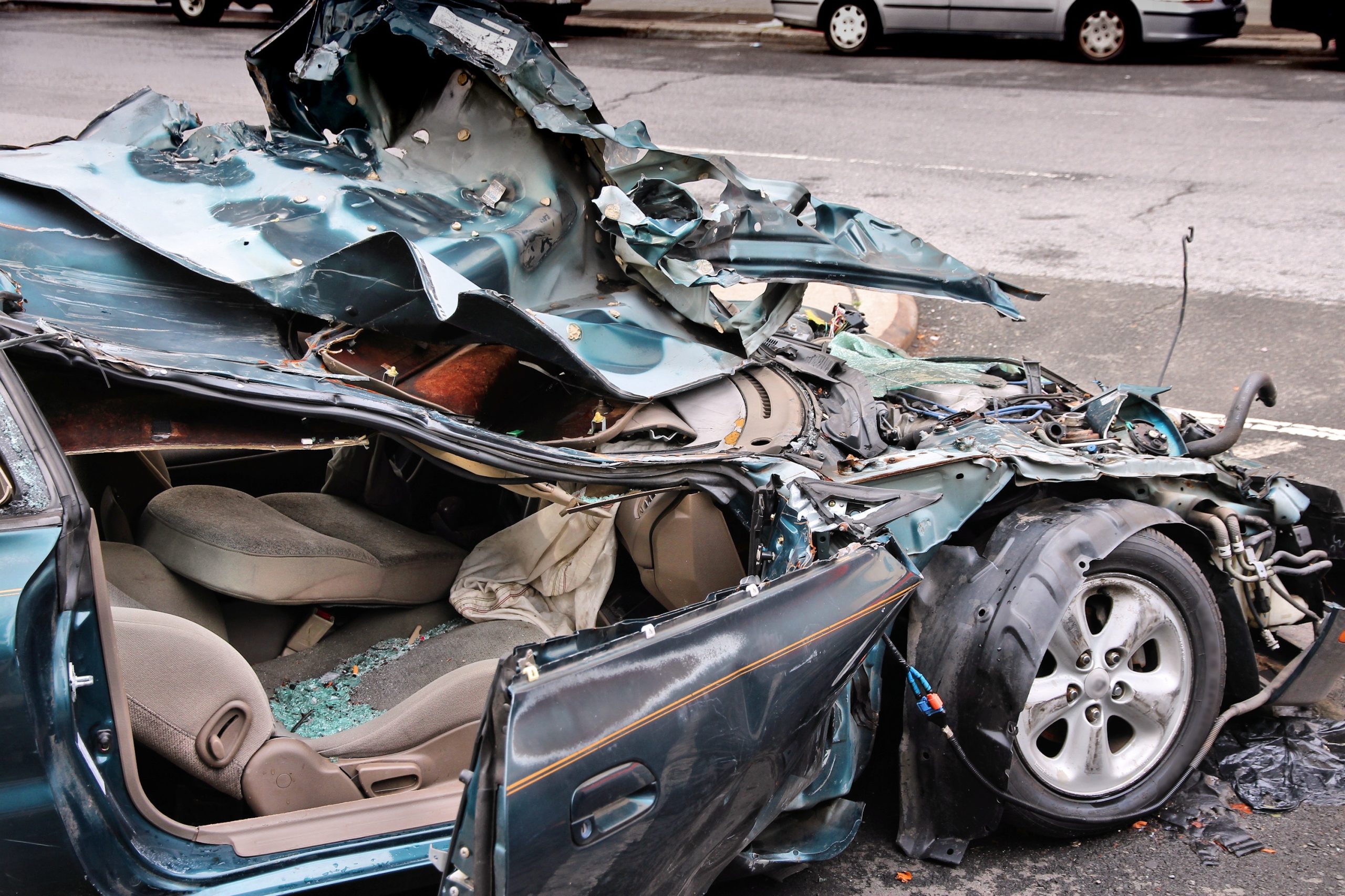When the insurance company determines your car is totaled, that means the cost of repairs is greater than its estimated value. However, that does not guarantee you can pocket the cash when your accident claim gets paid. Who gets the insurance check when a car is totaled depends on the following:
- Whether You Own the Vehicle
If you are the owner of the car and do not owe anything on it, the negligent driver’s insurer may pay you the Actual Cash Value (ACV) of the vehicle in its pre-crash condition. The ACV is typically based on the price of similar models in your area with the car’s age, mileage, and wear and tear factored in. Your insurance deductible will not be a factor if the other party’s insurance company pays the claim. However, if you are partially at fault, are responsible for the accident, or no one is at-fault for the damage to your car, you will likely pay the deductible. This is also the case if the at-fault driver is uninsured or underinsured.
- Whether You Still Owe on Your Vehicle Loan
The bank or finance company will receive the settlement proceeds if you have a balance on your loan. Then the insurance company will write you a check for the remainder (if there is any). Oftentimes, the check is issued to you and your lender; you must endorse it before submitting it to the lender, which then sends the title of the vehicle to the insurer. An insurance settlement may not cover the balance you owe on a vehicle loan. This is because vehicles depreciate over time and insurance companies typically do not cover amounts that exceed what a vehicle is worth (unless you file a personal injury claim). You will most likely still have to make payments if the car is totaled; failing to do so can hurt your credit.
What Exactly Does Total Loss Mean
A vehicle is a total loss (or totaled) if any of the following apply:
- The vehicle cannot be safely repaired
- Repairs would cost more than the vehicle’s estimated value
- The damage meets your state’s total loss guidelines
The Total Loss Formula
Insurance companies use a Total Loss Formula (TLF) to determine whether it is more cost-effective to repair a vehicle or declare it a total loss. The TLF is calculated as the cost of repairs plus the salvage value. If that number equals or exceeds the car’s ACV, the car is considered a total loss.
How State Laws Impact the Totaled Vehicle Process
Insurance regulations for totaled vehicles can vary considerably across different states. Here are some of the key state-level factors:
Total Loss Thresholds
- Varies by state – Some states use a 70% threshold for totaling cars, others go as high as 100%. This affects when insurers will declare a total loss.
- Percentage of car value – The threshold represents what percentage of the car’s pre-accident value the repair bill exceeds. Higher thresholds make total losses less likely.
- Set by state governments – Individual insurers cannot arbitrarily set their own total loss thresholds. They must adhere to the percentage dictated by each state.
Mandatory Salvage Titles
- Title branding varies – When an insurer claims a totaled car, some states require the title be branded as “salvage.” Others do not brand titles at all.
- Impacts resale value – A salvage title indicates the car sustained extensive damage. This makes the vehicle far less valuable if you choose to keep and repair it.
- Beware of title washing – Illicit sellers may try to “wash” the salvage brand from the title history of damaged cars. Only consider vehicles with clean titles.
Sales Tax on Replacement Vehicles
- Tax savings in some states – A few states waive sales taxes on the purchase of a replacement vehicle following a total loss claim. This can save you hundreds of dollars.
- Check with your state – Most states still require you to fully pay sales tax on a replacement vehicle, even after a total loss. There is no tax break.
- Keep tax savings in mind – If you live in a state that does waive tax for replacement cars, it can impact the ideal timing of when to buy the new vehicle.
Carefully research the total loss and salvage title laws in your state. They govern key details impacting the value of your settlement and can either cost you more money or provide savings when replacing your car.
State-Level Considerations:
- Total loss thresholds dictate when insurers must declare cars totaled.
- Some states require salvage branding of totaled car titles.
- A small number of states provide sales tax waivers on replacement vehicles.
Will My Insurance Company Reimburse Me for a Totaled Car?
Not every insurance policy pays for a totaled car. Collision coverage will cover the cost of repairs minus the deductible. Meanwhile, comprehensive coverage covers losses caused by a weather event, theft, vandalism, or hitting an animal. Other types of insurance that can pay for a totaled car include property damage liability coverage (when the other driver is at-fault), uninsured/underinsured motorist coverage, and new car replacement coverage. However, gap insurance may cover the difference if you owe more on your loan/lease than what the insurance company says the vehicle is worth.
A Possible Tax Break
If your vehicle is totaled, you may qualify for a federal income tax deduction for the unreimbursed portion of your loss. This is a casualty loss deduction and is not available if willful negligence or act on your part caused the accident.
Depending on your income and other deductions, it may take quite a large unreimbursed loss to achieve a benefit on your tax return:
- Unless your car was totaled in a federally declared disaster, the casualty loss deduction is only available if you itemize your deductions, rather than using the standard deduction.
- To calculate the deductible amount, reduce the unreimbursed loss by $100. Then, you can only take a deduction to the extent your total casualty losses for the year exceed 10% of your adjusted gross income.
The IRS determines the loss amount differently from how insurers calculate it. For details on the casualty loss deduction, talk to a tax professional or consult IRS Publication 547.



